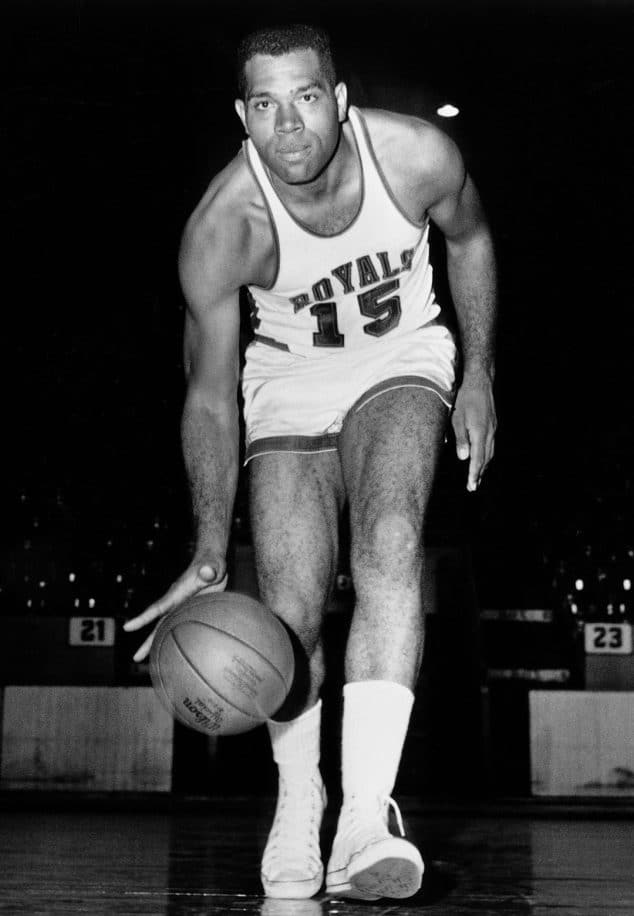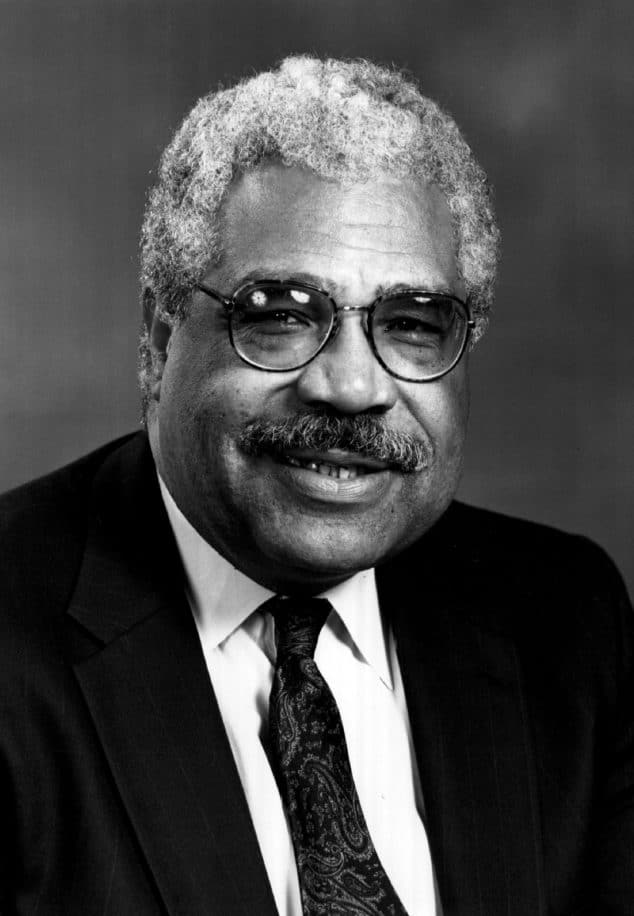Wayne Embry received a call from Wes Pavalon, not knowing what to expect. Pavalon, the Milwaukee Bucks’ founder and then-owner, scheduled a meeting with him, which resulted in a promotion.
In 1972, Embry was named Milwaukee’s general manager, becoming the first African-American GM in major American professional sports.
“I was stunned,” Embry later told The Undefeated. “I had no idea because back in those days I never gave it a thought that anyone would even think about considering me as a general manager—it never happened before.”
Before taking front offices roles, Embry was a player. He landed with the Cincinnati Royals via trade in 1958, where he spent eight seasons, including six alongside Oscar Robertson. He was later moved to Boston and was a part of the C’s 1967-68 championship team under Red Auerbach. Embry finished his career in 1969 after a brief stint with the Bucks. He averaged 12.5 points and 9.1 rebounds overall.

At 6-8, 240 pounds, the five-time All-Star was nicknamed “The Wall” for the hard screens he’d set on opponents. With his playing career over, Embry now served as a key figure in the Bucks’ front office. At the time, he downplayed holding the position, but admits being nothing short of ecstatic knowing he made history.
“I was just kind of nonchalant about the whole thing, but I was really excited inside,” he said. “I just wanted to make sure that I would be successful and hopefully be a general manager for a long time. And inspire others.”
As a GM, one of the key moves Embry made was trading for his former teammate in Robertson ahead of the 1970-71 season, the same year the Bucks won their first-ever title. After Milwaukee, Embry took the GM job for the Cavaliers in 1985.
Nine years later, another promotion came, as Embry became the NBA’s first black team president. He won Executive of the Year in ’92 and ’98 and was inducted into the Naismith Memorial Basketball Hall of Fame the following year.
“A lot of things were not that easy for him on his way to where he is today,” Robertson said in 2017. “There was not a plan for a lot of African-Americans in those days, to be honest. People think because they see him now, ‘Everything was so wonderful.’ But he persevered. And I’m happy for him for that.”

Prior to the NBA, Embry played college ball in his home state, starring at Miami (OH) University from 1955-58. He won two All-Mid Conference titles in ’57 and ’58, and was a part of the school’s first-ever win in the NCAA Tournament—an 82-77 upset over Pitt—where he posted 21 points and 20 rebounds.
In three years (freshman weren’t allowed to play varsity), Embry grabbed 1,117 rebounds, putting him second all-time for the Redskins (now RedHawks). In 1970, he was enshrined into the Miami University Hall of Fame, as his No. 23 jersey hangs inside Millett Hall. Embry was also inducted into the College Hall of Fame in 2006. Earlier this month, the school hosted “Wayne Embry Day” to honor his accomplishments.
With over 60 years of experience, Embry remains connected to the game, serving as the senior basketball adviser for the Toronto Raptors since 2004. The team also has the “Wayne Embry Fellowship” for those who aspire to work on the business side of the NBA. The fellowship gives participants an opportunity to gain firsthand experience in a professional basketball environment and learn a range of fields from coaching to scouting to player development, as well as gain operations experience at Summer League in Las Vegas and Basketball Without Borders at All-Star Weekend.
Last month, Embry was one of four NBA/WNBA players to receive the 14th Annual National Civil Rights Museum Sports Legacy Award on MLK Day in Memphis.
“Having lived through [the] ’40s, ’50s, ’60s and having to go through what we went through back before the civil rights movement and all with Dr. King … it’s just an inspiration to be able to have achieved and contributed to a lot of what Dr. King stood for and efforts and sacrifices that he made to make it possible,” he said. “That’s inspired me to want to make things better for others.”
There are currently four active African-American GMs—Elton Brand (Philadelphia Sixers), Magic Johnson (Los Angeles Lakers), Masai Ujiri (Toronto Raptors), James Jones (Phoenix Suns)—in the League. A true basketball pioneer, Embry, 81, laid the foundation for them and for those who aspire to follow a similar path.
“Hopefully I set an example,” he said. “… I think that when I was named general manager, my intentions were to not fail. … I was asked at the time that if I saw any significance or found any significance in being the first. And I said, ‘Only if it’s significant to others. And hopefully I’m not the last.’”
—
Drew Ruiz is an Associate Editor for SLAM. Follow him on Twitter at @DrewRuiz90.
Photos via Getty.